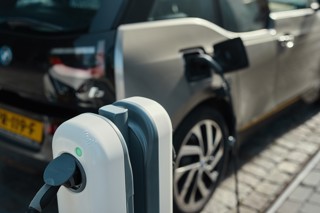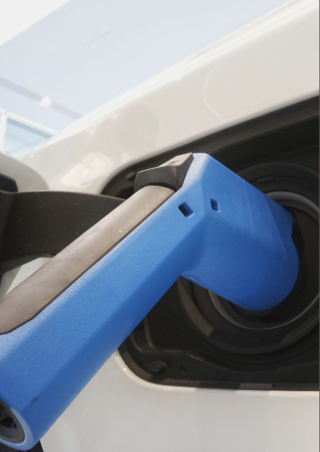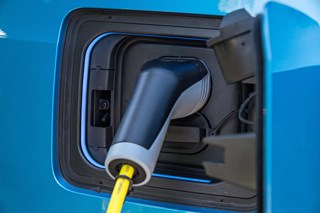By Nick Salkeld, chief operating officer at MHC Mobility
Over the last few years, we’ve seen a shift in the transport landscape.
The Covid pandemic has had a significant impact on the transport industry, with commuting requirements and routines adjusting as people adapt to working from home.
With that shift comes new ways of thinking and a growing desire for more flexible and sustainable transport options.
COP26 emphasised the growing demand for sustainable mobility solutions to meet new environmental goals, with many governments showing support for the transition to zero-emission vehicles.
The UK government pledged that all new cars and vans will be zero-emission by 2035; in this country alone, the move away from fossil fuels has been rapidly increasing, with one in five vehicles sold in November 2021 being 100% electric – nearly double that of diesel vehicles.
Despite the increase in numbers of electric vehicles (EVs) on roads across Europe, there are several challenges that must be overcome to help customers make the switch to electric.
While governments globally have made net-zero pledges, what are the challenges that we’re seeing on the ground and how can we overcome them?
High upfront costs
Although we see many EVs on our roads, there are still a lot of misconceptions, with some still considering them a luxury item.
There’s no denying that the high upfront costs are an obstacle for many.
Despite the fact that there are numerous cost-savings and tax benefits throughout the course of the vehicles’ lifespan, many consumers and businesses find the initial capital cost difficult to overcome.
However, there is an opportunity for businesses to see the switch to electric in a new light, by moving away from the traditional total cost of ownership (TCO) approach to a more relevant offering that benefits the environment which we are operating in today; a total cost of mobility (TCM) model.
The TCM approach looks at mobility more holistically, allowing companies to offer their employees more sustainable initiatives that cover the full spectrum of mobility.
In the Netherlands for example, we offer a mobility card for businesses and employees, in collaboration with Mobility Mixx.
This allows employees to use all forms of transport depending on their need, including e-bikes, an EV or public transport, and consolidates all associated fees into a single billing.
The ability to manage your mobility budget through a single system provides flexibility and encourages the switch to non-fossil fuel modes of transport.
While this isn’t yet possible in every environment, the TCM model is an exciting opportunity for businesses looking to decarbonise fleets and offer employees a new way of travelling.
Charger anxiety
Whilst we are witnessing rising EV adoption across Europe, if charging point accessibility doesn’t improve, this increase could easily stagnate, with the lack of infrastructure – and complex nature of the infrastructure – causing many businesses to go off the idea of investing in EV fleets.
Community charging is a problem due to a lack of interoperability.
Businesses could be managing over 40,000 types of sockets made up of 81 charging point operators and 52 different subscriptions.
When thinking about moving a full fleet to electric, having dozens of different cards, apps and payment methods just isn’t viable for businesses.
Some businesses even avoid public charging altogether, making charger anxiety a clear barrier to adoption.
If we are to reach net zero, access to charging – and making it viable for both individuals and businesses – must be a priority for businesses and governments.
In Belgium for example, the Government is installing 30,000 new charging stations by 2026.
For mobility businesses, customer-focused solutions are the next step toward a more sustainable future.
At MHC Mobility we focus on tailoring our product offerings to individual customer needs, to ensure that adopting sustainable mobility is made as simple as possible.
Working with governments
As the importance of sustainability and decarbonisation grows, it is only natural that the industry shifts its focus to alternative ways to support clients and help them minimise their carbon footprint.
But the mobility industry cannot accomplish this on its own.
With transport contributing 27% to overall emissions in the UK, governments must assist in making this shift a reality.
We need incentives to encourage customers to transition to electric.
In Poland for example, we're participating in the government-backed Moj Elektryk programme, which aims to accelerate the rise of electromobility by assisting customers in taking advantage of government subsidies.
We can't simply expect people to pick sustainable modes of transportation; we must make the sustainable option the easiest option to take.
Businesses as changemakers
I would echo my colleague Jonny Berry’s (head of decarbonisation at MHC Mobility’s sister company Novuna Vehicle Solutions), comments when he said, “If we scale fleet and business emissions first, we’ll scale emissions faster,” with the average fleet car in the UK covering more than double the yearly mileage of a private car.
We see businesses as changemakers when it comes to reaching net zero targets and bringing EVs onto our roads, through the electrification of their fleets.
Once individuals have a company EV, they will be more likely to change their behaviour and choose electric for personal use.
Decarbonisation is central to our ethos, so mobility professionals like us must use our experience and expertise to help businesses to facilitate that change, creating an environment that allows businesses to switch to electric at a pace that works for them.





















Login to comment
Comments
No comments have been made yet.